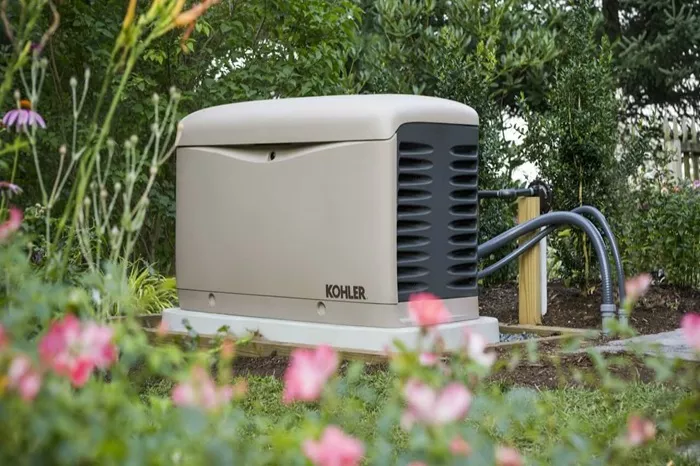Choosing the right wattage for a generator to run a refrigerator is an essential task for ensuring that your appliance operates efficiently during power outages or off-grid living. Understanding how much power your refrigerator requires can save you time and money, and prevent overloading your generator. This article provides a detailed breakdown of how to determine the wattage you need, along with factors to consider when choosing a generator. We’ll explore the key aspects that affect the power consumption of refrigerators and how to calculate the right wattage.
Understanding Refrigerator Power Consumption
Before selecting the appropriate wattage generator, it’s important to understand how refrigerators consume power. Refrigerators typically run on an electric compressor that kicks on periodically to maintain a cool environment inside. Power consumption depends on several factors, including the type and size of the refrigerator, the age of the appliance, and the ambient temperature.
Power Consumption by Refrigerator Type
Standard Refrigerators
A standard refrigerator typically requires between 100 and 800 watts to run, depending on its size and features. The starting wattage (when the compressor turns on) can be higher than the running wattage.
Mini Fridges
Smaller refrigerators, like mini-fridges, consume less power—around 100 to 250 watts. These appliances are designed for less storage space and are often found in dorm rooms or offices.
Energy-Efficient Refrigerators
Modern, energy-efficient models may use less electricity. These refrigerators are designed to optimize energy consumption, reducing both their running and startup wattage.
Side-by-Side or French Door Refrigerators
Larger refrigerators with advanced features like water dispensers or ice makers typically consume more power. Their wattage can range from 500 to 1,000 watts, depending on the complexity of the internal systems.
Startup Wattage vs. Running Wattage
When calculating the generator wattage needed to run a refrigerator, it’s crucial to differentiate between running wattage and startup wattage.
Running Wattage
This is the amount of power required to keep the refrigerator running once it has started. For most standard refrigerators, running wattage is typically between 100 and 400 watts.
Startup Wattage (Surge Wattage)
The refrigerator’s compressor needs a surge of power when it starts. This surge can be up to two to three times the running wattage, depending on the model. For example, a refrigerator with 300 watts of running power may require a surge of 600 to 900 watts to start.
Calculating the Right Wattage for Your Generator
To choose the right generator, you need to ensure that its wattage can handle both the running and startup requirements of your refrigerator. The calculation is fairly straightforward.
Check the Appliance Label
The first step is to check the refrigerator’s power requirements, which can often be found on the appliance label or in the user manual. It will list both the running and startup wattage.
Calculate the Total Wattage Needed
Add up the running wattage and the surge wattage. For example, if your refrigerator requires 300 watts of running power and a surge of 900 watts, you need a generator capable of providing at least 1,200 watts (300 running + 900 surge).
Allow for a Margin of Safety
It’s always a good idea to leave some margin for unexpected fluctuations in power usage. Therefore, a generator with about 20% more wattage than the calculated requirement is recommended. For the previous example, you would ideally want a generator with 1,440 watts or higher.
Selecting the Right Generator Size
Once you’ve determined the wattage required for your refrigerator, you need to choose a generator that can meet or exceed that wattage. Here are some common options based on refrigerator wattage needs.
Small to Mid-Sized Refrigerators
For small to mid-sized refrigerators (e.g., those with running wattage between 100 and 500 watts), a portable generator with 1,000 to 2,000 watts will be sufficient. These generators are generally compact, affordable, and easy to transport.
Larger Refrigerators or Multiple Appliances
For larger refrigerators (e.g., those with running wattage of 500 to 1,000 watts), or if you plan to run other appliances in addition to the fridge, you’ll need a larger generator—around 3,000 to 4,000 watts. These generators can handle both the surge wattage required for starting the fridge and the additional load of other devices.
Inverter Generators for Sensitive Electronics
Inverter generators are a great choice if you’re concerned about power fluctuations, especially when running sensitive electronics along with your refrigerator. These generators provide a steady, clean flow of power and are quieter than traditional models. They typically range from 1,000 watts to 4,000 watts, making them ideal for most residential needs.
Other Factors to Consider
While determining the right wattage is essential, there are other factors that should influence your generator selection.
Fuel Type
Generators come in various fuel types, including gasoline, propane, and diesel. Gasoline-powered generators are common, but propane models tend to be cleaner and more environmentally friendly.
Noise Level
Some generators can be quite loud, which can be a significant concern if you’re using the generator in a residential area. Inverter generators are often quieter than traditional models, making them a better choice for home use.
Portability
Consider whether you need a portable generator. If you’re using the generator for an emergency backup power supply, portability might not be as important. However, if you’re planning to take the generator with you for outdoor activities, a lightweight and compact model would be more suitable.
Run Time
The run time of a generator is another factor to consider, especially if you need it to power your refrigerator for extended periods. A generator with a larger fuel tank will generally run for longer before needing a refuel.
Conclusion
Selecting the correct wattage generator to run a refrigerator is a vital task for maintaining appliance functionality during power outages or off-grid situations. By considering the refrigerator’s running and startup wattage, and allowing a margin of safety, you can ensure that the generator you choose is both efficient and capable. Additionally, keep in mind other factors such as fuel type, noise levels, portability, and run time when making your decision.

